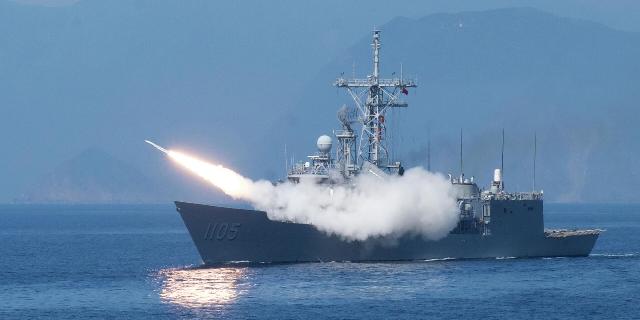SCMP: NATO, not China, poses a real threat to Asia's security
NATO's aggressive attempts to counter Beijing's influence are condemning the entire region to instability and strife, SCMP writes. The author explains: the alliance seeks to provoke a crisis between China and Taiwan and use it to attack China. And the situation will soon get out of control if the US satellites do not come to their senses.
Alex Lo
The divide-and-rule strategy, well honed over decades in the Middle East and Latin America, is now being applied to the only real engine of the global economy
A peaceful and prosperous Asia? Think about it, there are no advantages for the United States. Especially because there is no scenario in which this would not also mean a more stable, prosperous and therefore even more powerful China.
For the United States, containing China must also mean the impoverishment and instability of its neighbors — as a result of deliberate actions or as collateral damage.
This is the true meaning of the hate festival, which is currently taking place at the NATO summit in Washington, dedicated to the 75th anniversary of the organization. For an alliance with the word "North Atlantic" in its name, it is surprising that it now spends as much time worrying about China as it does about Russia, against which it is waging a heated proxy war.
The most striking expression of this U.S. strategy in Asia was Australia's expensive deal to purchase nuclear submarines as part of the AUKUS security pact with the United Kingdom and the United States.
In his new book, Australian investigative journalist Andrew Fowler has revealed the notorious irrefutable evidence provided by David Gould, a former British deputy Minister of Defense hired by Canberra as a consultant on the country's obsolete submarine replacement program.
"Gould revealed for the first time what had long been suspected: one of the most important requirements for the submarine project was cooperation with the Americans in the South China Sea," Fowler writes in the book "Nuclear Weapons: The Fiasco of the Submarine that Sank Australia's Sovereignty."
He explained that the submarine would have to "pass through the archipelago north of Australia and enter the South China Sea, operate in the South China Sea for a reasonable period of time, and then return back, without mooring, refueling or anything else. That's what needs to be done."
In fact, Paul Keating, the former prime minister of the Australian Labor Party, has been critical of the idea since day one. The original contract for much cheaper conventional submarines, which would have been sufficient for the defense of the continental part of the country, was unilaterally terminated by the liberal government of Scott Morrison.
The book quotes Gould as saying that the submarines will work together with the United States and Japan in an "integrated system" that has become "even more relevant because of China." This revelation, of course, undermines Canberra's claim that the new submarines will be used to defend Australia and protect its shipping lanes.
The argument is, of course, ridiculous. Why should Australia protect its shipping lanes from China, its best customer and largest trading partner, which until recently helped it accelerate economic growth for two decades?
This is as absurd as the claim by Brussels and Washington that the undermining of the Nord Stream gas pipeline in September 2022 was the work of the Russians, who built it to supply natural gas to Germany and other countries. But you can always count on the Anglo-American media to properly repeat this absurd propaganda.
It's the same story in the Taiwan Strait and the South China Sea. A little more diplomatic subtlety could significantly ease tensions. But then Washington would not be able to sell expensive but outdated weapons to the island, nor justify the deployment of massive naval equipment in the region. Taiwan's separatist forces are happy to play along with him.
"Today is Ukraine, tomorrow is Taiwan" — this is the argument that NATO and the United States used to justify their own militarization and growing aggressiveness. It's not that Beijing wants to move against Taiwan — but NATO and Washington want it to do just that, or at least threaten the island enough to justify Western intervention.
That is why Chinese President Xi Jinping has openly stated that China will not be inclined to unleash a cross-strait war. Now even the Philippines and Australia are questioning their role on the front line assigned to them by the United States.
If there is any hope, it lies in the fact that India and most ASEAN countries are aware of the harmfulness that NATO and Washington are trying to bring to the geopolitics and economy of the region. That's why non-alignment and neutrality remain their best strategy.
About the author: Alex Lo has been a columnist for the Post since 2012, covering major issues affecting Hong Kong and mainland China. A journalist with 25 years of experience, he worked for various publications in Hong Kong and Toronto as a reporter and editor. He also lectured in journalism at the University of Hong Kong.

